Published Aug 6, 2024
The Needs of the Many: Personal Sacrifice in Star Trek
Star Trek is full of notable occasions when heroic deeds outweighed a desire for one's own well-being.
This article contains references to certain aspects of Star Trek: Prodigy Season 2, including major spoilers about Episode 16, "Ascension, Part II."
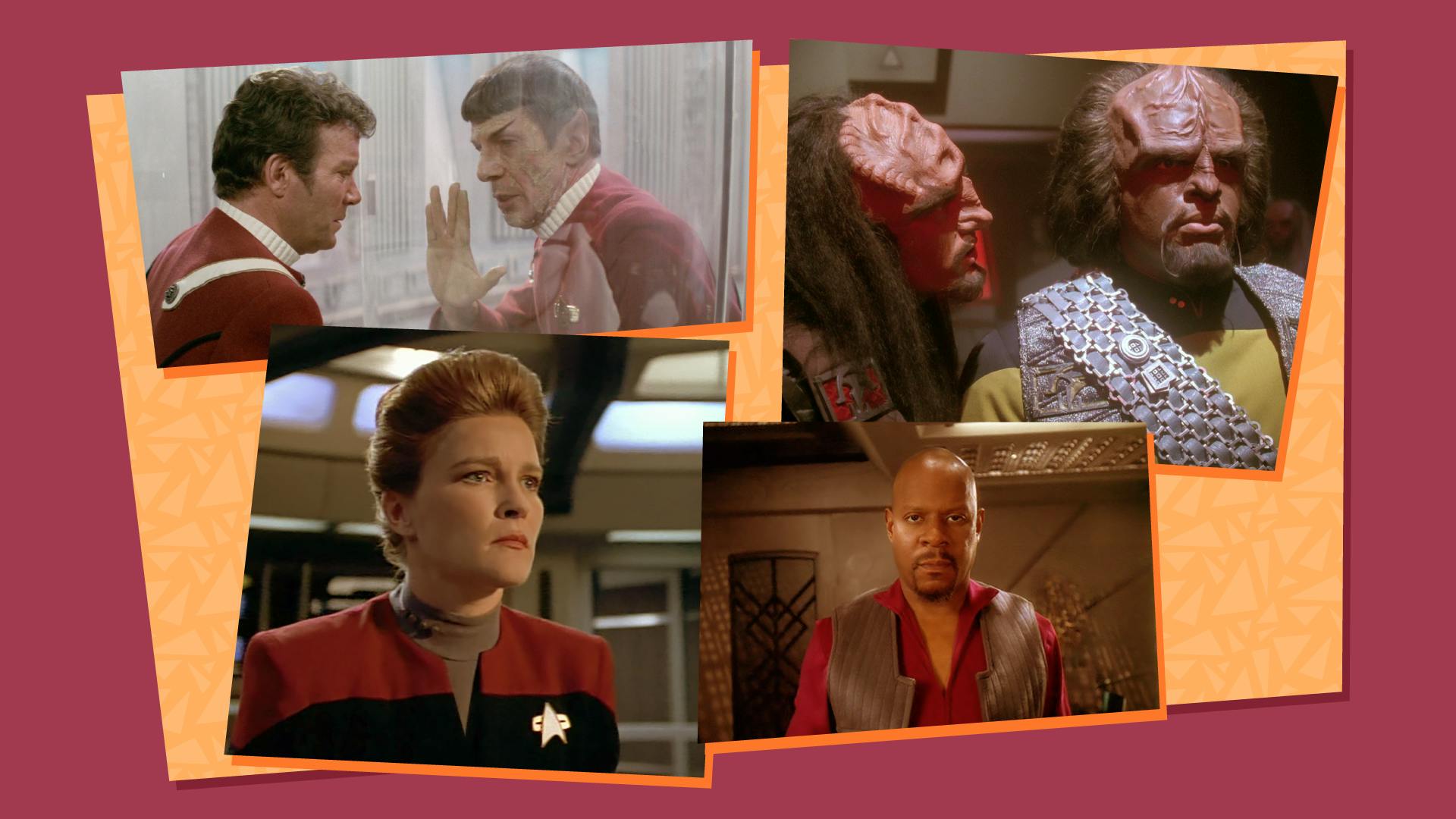
StarTrek.com
With Asencia's Incursor lodged in the U.S.S. Voyager-A's hull and emitting a wave that accelerated time itself in 's "Ascension, Part II," Zero chose to disable the time weapon and sacrifice their corporeal body in order to protect the starship and its crew. While Zero survived in their original Medusan form, they were nevertheless willing to give up the joy of physical sensations.
Since Zero's brave actions echoed an extensive legacy of Star Trek characters who selflessly opted to put the needs of the many ahead of their own, let's look back on other notable occasions when heroic deeds outweighed a desire for one's own well-being.
The Valiant Vulcan
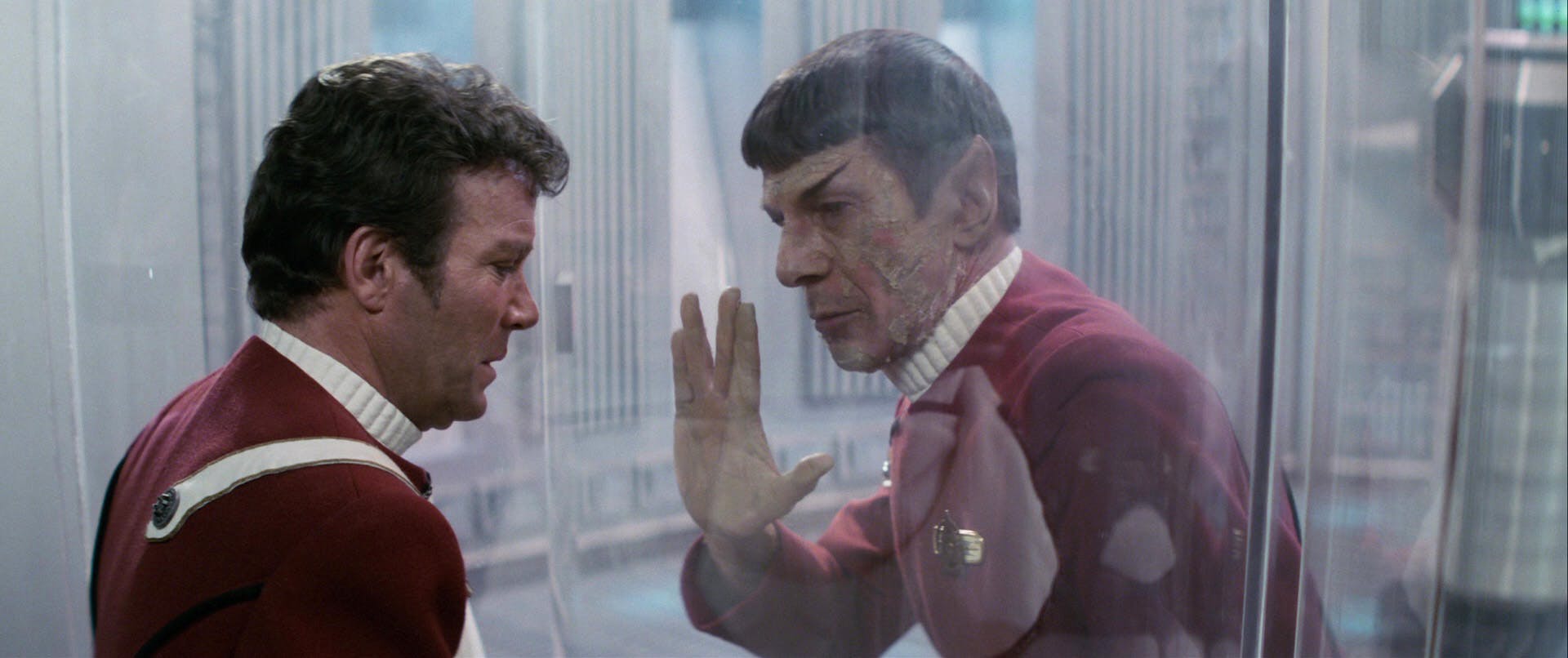
Star Trek II: The Wrath of Khan
StarTrek.com
No discussion of sacrifice in Star Trek could ever be complete without mentioning Spock's selfless decision to brave lethal radiation in order to repair the U.S.S. Enterprise's warp drive in . The act allowed the starship to escape the explosive wave produced by Khan Noonien Singh's activation of the Genesis Device, saving Admiral James T. Kirk and the entire crew from experiencing a sudden demise. Spock held on long enough to say goodbye to his dear friend, the deadly dose of radiation too much for even a Vulcan to endure.
While Spock's ability to transfer his into Dr. Leonard McCoy's mind, the science officer's resurrection was never guaranteed and did not diminish the heroic nature of his deed. Not to mention the fact that his friends remained unaware of the procedure until after they returned to Earth.
The Caretaker Conundrum
Star Trek: Voyager - The Journey
Having been thrown into the depths of the Delta Quadrant by the Caretaker's array in 's "," Captain Kathryn Janeway hoped that her starship's stay in the distant region would be a relatively short one.
Although Tuvok reported he could access the system to send U.S.S. Voyager back to Federation space, departing would permit the Kazon to gain control of the array and annihilate the Ocampa. Unwilling to trade those lives for her own convenience, Janeway ordered the launch of tricobalt devices and destroyed the Caretaker's facility. Rather than compromising her morals or letting the innocent suffer, the captain picked a path which left her ship stranded far from home and cut off from their friends, loved ones, and Starfleet Command.
The Honorable Offspring
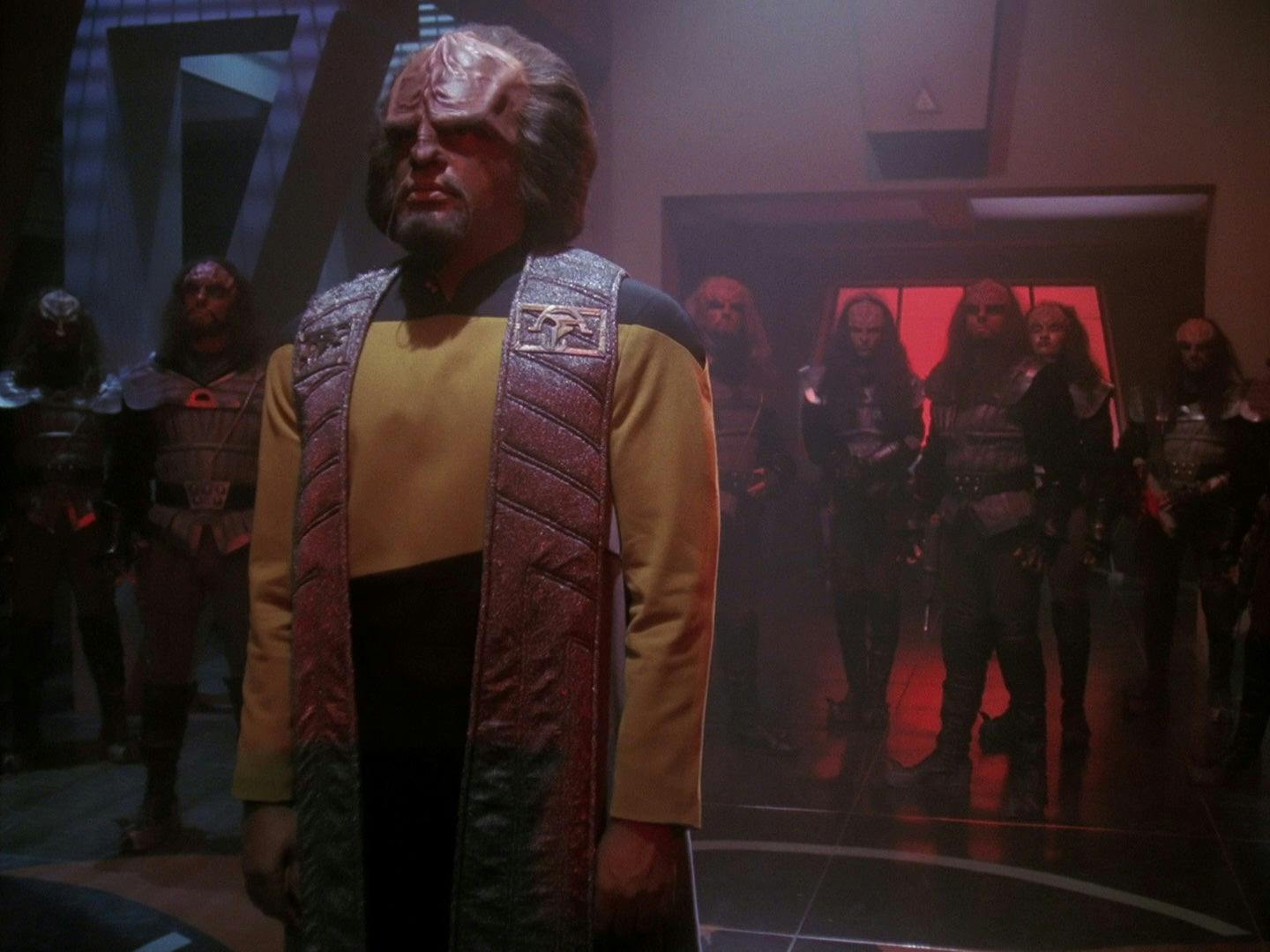
"Sins of the Father"
StarTrek.com
When the Klingon High Council judged Lieutenant Worf's father to be a traitor in 's "," the Starfleet officer set course for Qo'noS and fought to clear his family name.
In reality, it was Duras' father who had betrayed his people to the Romulans at Khitomer, but the Chancellor sought to protect the Duras family in an effort to avert a civil war. The deception was soon exposed, yet Worf recognized that he would still need to publicly accept discommendation so as to safeguard his brother from execution and deter the Empire from falling into disarray.
In Worf's eyes, being falsely perceived as dishonorable became the only honorable way to serve his homeworld's best interests under those circumstances. However, Worf did not intend to tolerate the outcome as a permanent sentence, a resolution which set the stage for his eventual redemption.
The Temporal Trial
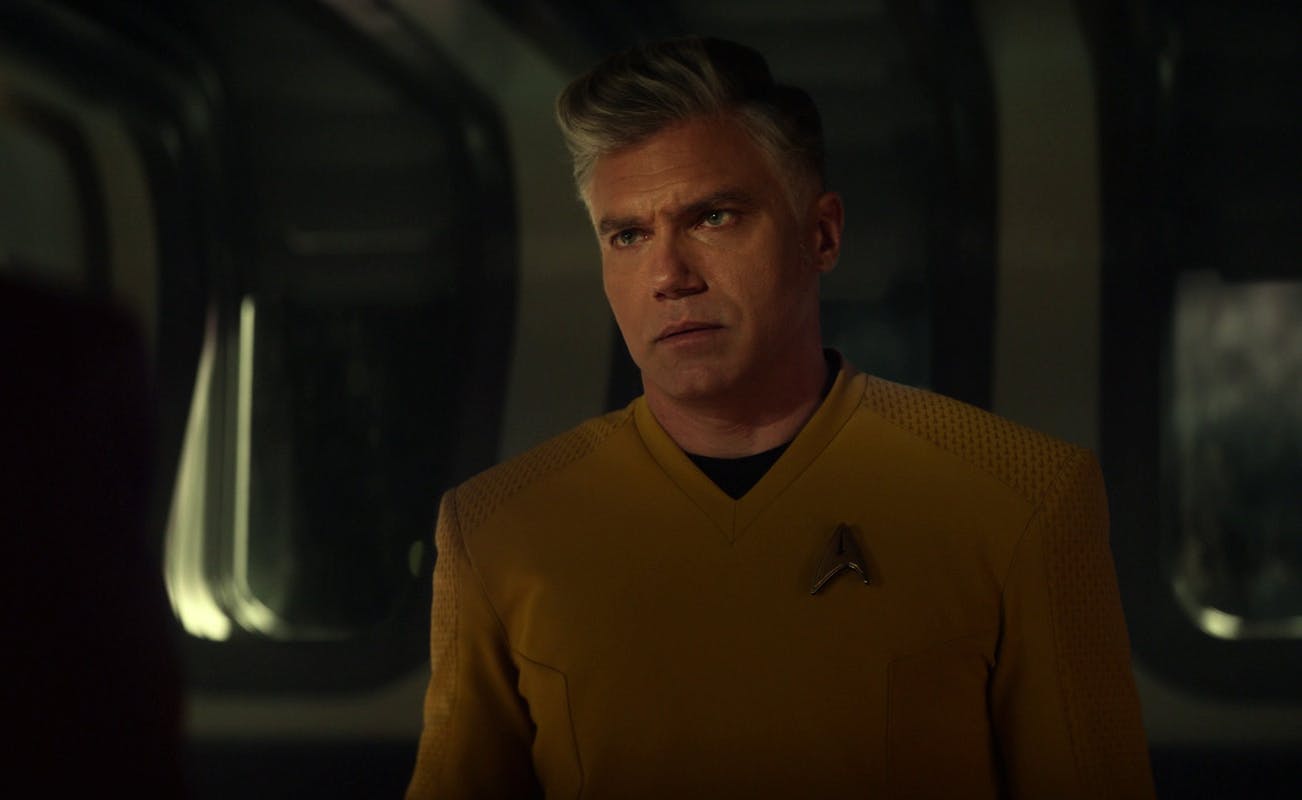
"A Quality of Mercy"
StarTrek.com
Exposed to a possible future where he never suffered the repercussions of a hazardous training accident, Captain Christopher Pike watched in horror as his good fortune inflicted Spock with his own set of untreatable injuries and stoked a brutal war with the Romulans in ' "."
If Pike tried to change his fate, Spock would always die and be unable to foster peace with the Vulcans' distant cousins. The encounter persuaded Pike to halt his plan to warn the cadets about the impending mishap, helping the captain realize that escaping his fate would only place that outcome on Spock's shoulders. In the end, Pike selected a path that wounded him while sparing his friend and the Federation.
The Dominion War Deal

"In the Pale Moonlight"
StarTrek.com
Fearing that the Federation and Klingon Empire may not be able to win the war against Dominion, Captain Benjamin Sisko elected to approach Garak about bringing the Romulans into the conflict in 's "."
This led Sisko down a trail of ethical compromises, which included manufacturing evidence of a Dominion plan to attack the Romulans, freeing a violent criminal, bribing Quark, and trading potentially dangerous bio-mimetic gel. The machinations seem to fall short, but Garak's hidden plan to kill a Romulan senator and blame it on the Dominion succeeded in its goal of convincing the Romulans to join the Federation and Klingon alliance.
As Sisko expected, this proved to be a turning point and contributed to the victory over the Dominion the following year. Although Sisko saved the Alpha Quadrant and thought he could live with his actions, the weight of a guilty conscience was a heavy burden for the morally-conscious captain to bear.
The Red Angel's Resolve

"Such Sweet Sorrow, Part 2"
StarTrek.com
's "" depicted the culmination of the U.S.S. Discovery's desire to thwart the hostile artificial intelligence known as Control from obtaining the Sphere data and wiping out all sentient life in the galaxy.
In order to keep the Sphere's knowledge away from Control, Michael Burnham and the majority of her crew took the unprecedented step of leaping approximately 930 years into an uncertain future. To Discovery's heroic personnel, even the drastic measure of severing ties with their loved ones and bidding farewell to the century they called home was a small price to pay to ensure sentient life would not be pushed into oblivion.
The Coalition's Creation
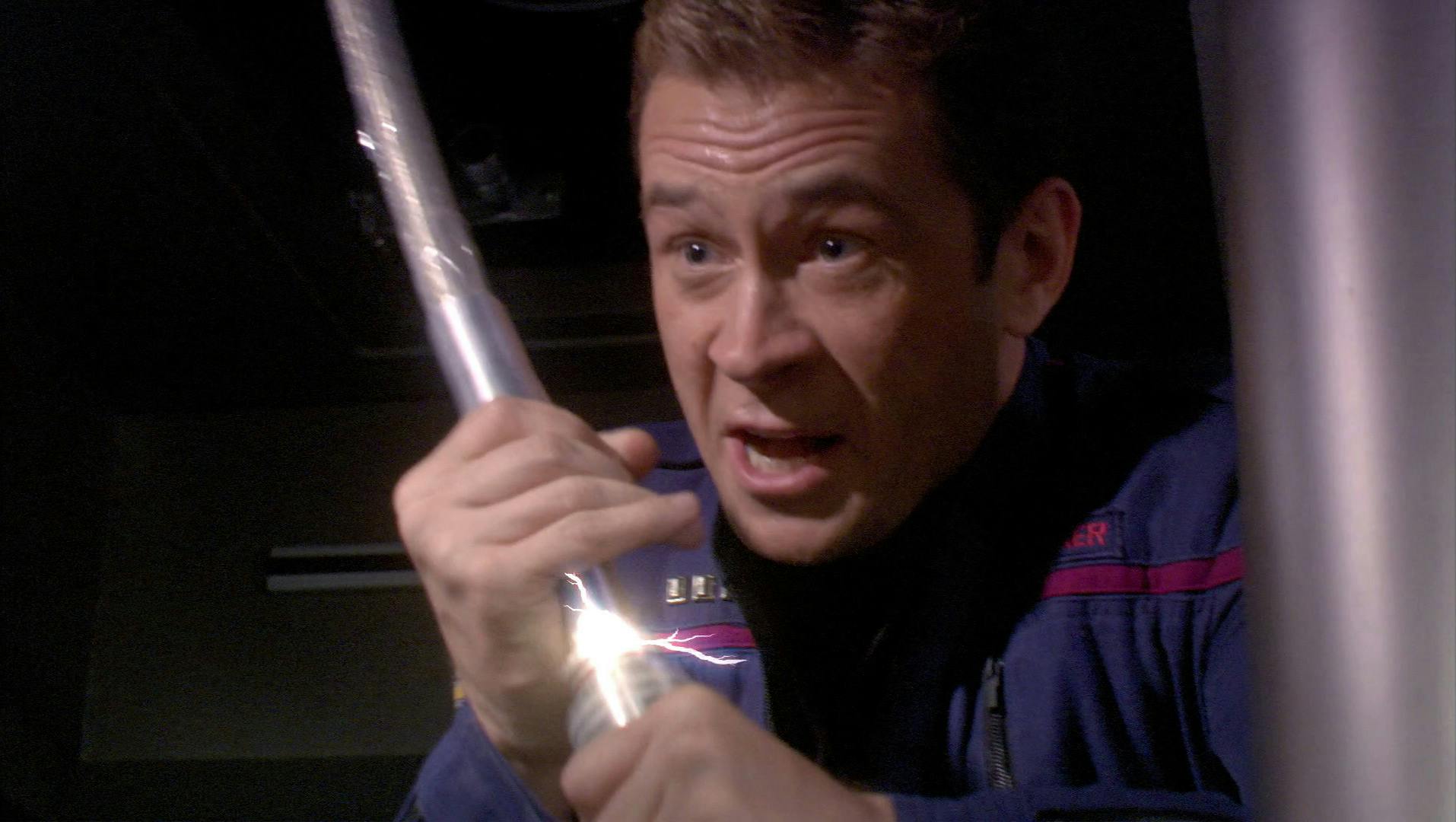
"These Are the Voyages..."
StarTrek.com
's "These Are the Voyages…" found Captain Jonathan Archer's Enterprise en route to the creation of an interstellar alliance that would one day give birth to the United Federation of Planets. A gang of outlaws boarded the ship in a bid to locate Shran, cornering Archer and Commander Charles "Trip" Tucker before demanding they deliver the Andorian.
Cognizant of how important Archer would be to the pivotal alliance, Trip lured the bandits away from the captain and purposely set off an explosion. The intruders were killed, but Trip was also mortally wounded. The chief engineer gave his life, both for his close friend and for the peaceful future promised by that planetary coalition.
The Warp Drive Dilemma
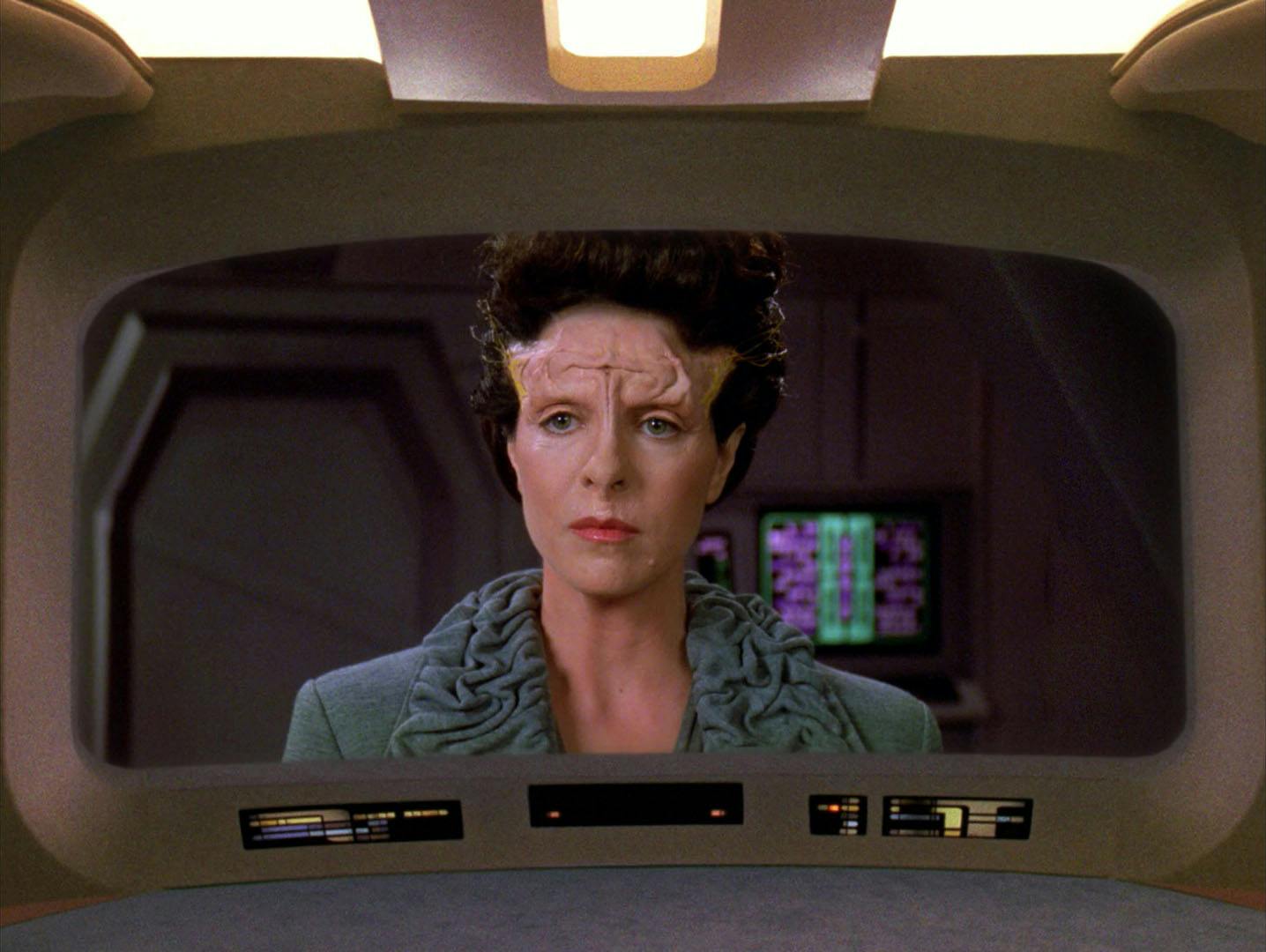
"Force of Nature"
StarTrek.com
Convinced that warp travel through the Hekaras Corridor would rupture subspace and leave her home planet uninhabitable, Dr. Serova was frustrated by the lack of urgency expressed by the Federation in The Next Generation's "." As a last resort, Serova initiated a warp core breach that destroyed her ship and created a subspace rift.
The result confirmed the doctor's hypothesis about the impact of warp drive on the region, forcing the Federation to impose new regulations on warp travel and explore ways to repair the damage. Serova's actions were extreme and hastened the climate change process on Hekaras II, but sacrificing her life spread an awareness that surely saved other worlds from the same fate and motivated the Federation to provide more support to her planet.
The Impromptu Insurrection

Star Trek: Insurrection
StarTrek.com
The metaphasic radiation emanating from Ba'ku's planetary rings held regenerative properties which restored the cells around Geordi La Forge's optic nerves, granting him the gift of sight in .
As therapeutic and exhilarating as the development was for the engineer, he refused to let it cloud his judgment when it came to Admiral Dougherty's covert plan to relocate the people of Ba'ku and harvest the planet's energy. Adamant that his joy over seeing a sunrise not come at the cost of the Ba'ku, La Forge championed Jean-Luc Picard's unauthorized mission to foil Dougherty's plot. Coupled with his friends' sacrifices, La Forge's choice was the very definition of placing the needs of the many before his own.
The Loss of Love

"The City on the Edge of Forever"
StarTrek.com
When Dr. Leonard McCoy's journey into the past erased the utopia of the future in 's "," Captain Kirk was placed in the unimaginable position of learning that the only way to restore the timeline entailed standing by as an innocent 20th Century civilian died in an accident.
The fact that the person in question happened to be Edith Keeler, a pacifist who Kirk had fallen in love with during his trip through time, only intensified the anguish of the predicament. In the end, Kirk intercepted McCoy before he could save Keeler, preventing her from founding a peace movement that would have inadvertently changed the course of history. Although the captain saw it as a necessary step, the horrible tragedy inflicted so much pain and sadness upon him that he could not bear to witness it.




